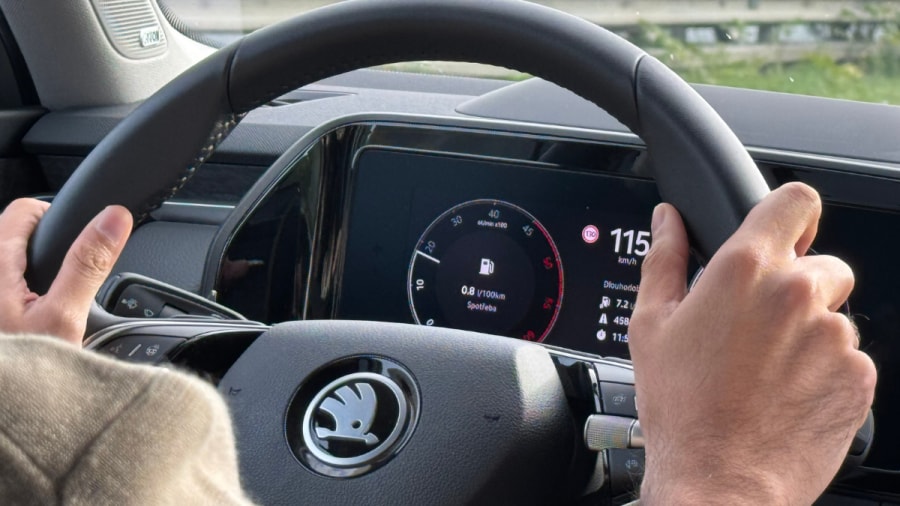The Tragedy of Diesel
We recently visited Prague, invited by Skoda, and ahead of the global reveal of their latest EV, the Elroq, they gave us a deep dive into Czech culture. One of the highlights was a trip to the State Opera. Surprisingly, it was my first time experiencing an opera - perhaps because the only high-pitched sounds that usually grab my attention are engines revving past nine thousand RPM. But the opera was something else, and what better way to experience it than through the intense emotions of Othello?

In the Shakespearean world, few characters captivate like Othello and Iago. Their story is one of betrayal, deception, and ultimately, tragedy. But if you've been keeping an eye on the auto industry lately, you might find that there's a modern-day parallel playing out before our eyes - one where carmakers play the role of Othello, diesel engines embody the ill-fated Desdemona, and the EV movement, with its promises of a greener future, becomes our Iago.
The relationship between automakers and diesel engines has always been a classic love story. While I'm drawn to the thrill of high-octane petrol engines, it's impossible to overlook the appeal of diesel - its torque and efficiency are hard to beat. Diesel, once the pride of many manufacturers, stood as the pillar of efficiency, reliability, and power-packed performance. It delivers unbeatable fuel economy and range that gasoline engines simply can't match. Diesel has been like Desdemona - admired, cherished, and revered as a reliable companion.

But like in Othello's tale, love stories often turn tragic when an unseen force comes into play. Enter Iago, or in our case, the EV revolution. With its seductive promises of zero emissions and a cleaner, greener planet, the electric vehicle ecosystem has emerged as the ultimate disruptor. At first glance, it seems like an obvious win. Who wouldn't want to drive a car that helps save the planet, requires less maintenance, and boasts futuristic tech? But beneath the surface, the EV movement has created a rift - one that's leading automakers to suffocate their former love: the
diesel engine.
In the real world, it's not jealousy that drives the wedge, but regulatory pressure and shifting market dynamics. Governments across the globe, driven by the pursuit of net-zero carbon goals, have ramped up stringent emissions standards. Cities are banning diesel-powered vehicles from their centres, and consumers are being offered enticing incentives to make the switch to electric. Much like Iago's subtle manipulations, these actions seem well-intentioned, but their consequences could be severe.
For years, diesel engines were the poster child of efficiency. But the rise of electric vehicles has tarnished that reputation globally, with diesel engines being framed as dirty and obsolete. Dieselgate certainly didn't help, providing the EV movement with the very ammunition it needed to accelerate its plans. Like Othello, automakers felt the sting of betrayal, and slowly but surely, they began turning their backs on their once-beloved diesel technology.
What's tragic about this shift is the fact that diesel engines were, in many ways, misunderstood. Modern diesels have evolved to become far cleaner and more efficient than their ancestors, offering low CO2 emissions that could still be beneficial in an eco-conscious world. But the narrative has already been set, and many automakers - just like Othello - are convinced that their beloved Desdemona has to go.
The result? A shift to electrification, but with significant trade-offs. Electric vehicles, while undeniably the future, are not without their own set of challenges. Charging infrastructure remains inconsistent, battery production and disposal have environmental impacts of their own, and consumer adoption, though growing, is still far from universal. We've placed our trust in the EV ecosystem, much like Othello placed his trust in Iago, without fully understanding the long-term ramifications.
And let's not forget the emotional loss. Diesel engines had a character, a unique feel that electric vehicles, for all their benefits, struggle to replicate. We love our SUVs and the rumble of a diesel engine, the sense of mechanical strength under your foot - it's hard to compare that to the quiet hum of an electric motor. The death of diesel isn't just about regulations; it's about losing a part of the driving experience that enthusiasts once held dear.
In Shakespeare's tragedy, Othello realises too late that he's been manipulated, and that his actions have led to the senseless death of someone he loved. It's not hard to imagine a future where automakers may look back on this period of electrification with a similar sense of regret, wondering whether the complete abandonment of diesel was necessary or if there was a way for both to coexist.
Of course, there is arguably no stopping the shift towards alternate energy sources, and in many ways, it's a necessary evolution for the industry and the planet. But in our rush to embrace this EV revolution, let's not forget the tragic lesson of Othello: sometimes, the cost of following the manipulator can be the loss of something you loved, without ever fully understanding why.
In the end, like Desdemona, diesel engines may never have stood a chance. But as we charge ahead into an electric future, it's worth remembering the relationship we once had with them. Because while the temptation of progress is hard to resist, it's not without its tragic consequences.